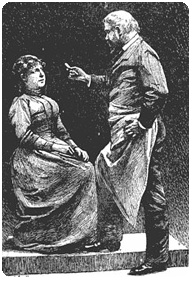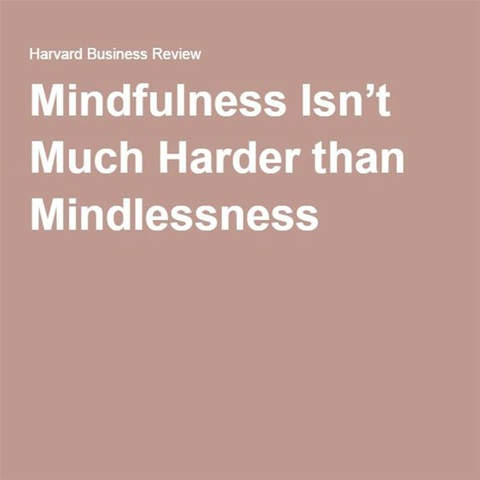S # 11 : As early as 1840, James Braid, founder of hypnotism stated that eastern meditators self hypnotise
....the Magi of Persia and Yogi of India have practised for the last 2,400 years, for religious purposes, throwing themselves into their ecstatic trances by each maintaining a steady fixed gaze at the tip of his own nose; it is obvious that there is no need for an exoteric ( external } influence to produce the phenomena of Mesmerism. […] The great object in all these processes is to induce a habit of abstraction or concentration of attention, in which the subject is entirely absorbed with one idea, or train of ideas, whilst he is unconscious of, or indifferently conscious to, every other object, purpose, or action.[45]
https://en.wikipedia.org/wiki/Hypnosis
S # 12 Seemingly Harmless Breath Relaxation Techniques & Hypnotism
-
When your frontal lobe goes offline because of low cerebral blood flow and being starved off all incoming data ( silence and nothingness ) you in already in an advanced stage of hypnotic-induction. Any suggestion can then be made to you eg, that you are actually one with the universe or God will be easily accepted.
In Breath Relaxation if taught hypnotically, the progressively suggestions may be ...
1] Now you are relaxed
2] This is what " being in
-
the moment" is
3] You are now free from your past, let it go....
4} Now you have no anxiety, no fear of the future
4] You are one with everything... and with the people all around you
5] You are one with the Universe....
The combination of neural phenomena causes the neural conditions/feelings that facilitate the hypno-suggestion. Now Breath Prayers can also be "hypnotic" and the hypno-suggestion may well be " Now you are in the presence of God ". How is Rick Warren teaching it ?
S #13 Mindfulness Uses Alpha Brainwaves For "Optimal Inattention" And The " Power To Ignore" Mental Problems
Psychology Today reports that mindfulness meditation and its ability to generate alpha brainwaves is thought to be useful to give one the "power to ignore", to achieve "optimal inattention" and to "minimize" sensory inputs that are regarded as problems in depression and anxiety.
Should this be the correct approach to therapy ? Are symptoms or root causes being " ignored" ? How does the patient select what is being ignored ? Has the patient when doing mindfulness the power of mental faculties to choose between symptoms and root causes ?
Mindfulness which incorporates eastern meditation practices are known to reduce cerebral blood flow to the frontal lobe, deactivate frontal lobe functions taking it "offline", calming the amydala ( bliss & tranquility) and increase not just alpha but theta waves ( deep sleep ). More dramatically, eastern meditation deactivates the parietal lobe to the extent that one loses ones awareness in three dimensional space and time, this being the mother of "being in the moment" when time satnds still. Under these altered mind-state, when the frontal lobe is "offline", reality and illuion are not discerned. Click: S #01- 07
A Psychology Today blog reports ....
- The Brown researchers hope that teaching people how-to harness the “power to ignore” by creating an alpha brain state through mindfulness ....
- Neuroscientists at Brown University are doing research on how the brain achieves "optimal inattention" by changing the synchronization of brain waves between different brain regions.
- When alpha oscillations are prominent, your sensory inputs tend to be minimized and your mind is generally clear of unwanted thoughts
-
Like eastern meditation, mindfulness disconnects and alters brain functions which in turn alters the mind making it difficult to perceive and differentiate between reality and illusion.
The book BUDDHA PILL by 2 psychologists records 1 of their personal experience with meditation -
" I’d get into a mental state where thoughts disappeared, like being in an empty room with all the blinds shut. Inexplicably, rather than being in a dull space where nothing happened, I would feel something I can only roughly describe as waves of blissful electricity moving through my body. There was a downside to it, though. Coming out of the meditation, ....... -
Mindfulness For Dummies!?
......I often felt I was hovering above reality and everyday concerns. Despite being able to control or even feel unattached from negative feelings – anger,sadness or frustration – I was shocked to find that, sometimes, this lack of attachment made me less sensitive and empathic to other people’s feelings. It was only when a friend joked I was becoming a ‘meditation junkie’ that the penny dropped. He was right; meditation was turning into a way of bypassing real life, or at least of avoiding the parts of it that were difficult or bitter. I had decided then to drastically reduce my practice." Buddha Pill, Bliss Techniques







Latest comments
Hi there, I am interested in becoming a certified meditation instructor/coach, what would you say is the best in order for me to receive these credentials. Christ centered of course. Thanks.
Hello "m". Please do send me an e-mail. If my e-mail address is not attached to this reply, you can see my e-mail address on this webpage:
https://awa7.org/about-awa-contact-us
Would like to contact Will Baron about Feldenkrais, Rolfing, applied kinesiology comparisons. If you have any free material on mysticism, I would like for the research group to send them to me. Thanks
Hi. Where are you going after Portland? Coming to Southern California? I will watch your 3 talks in Portland in sequence. Thanks.